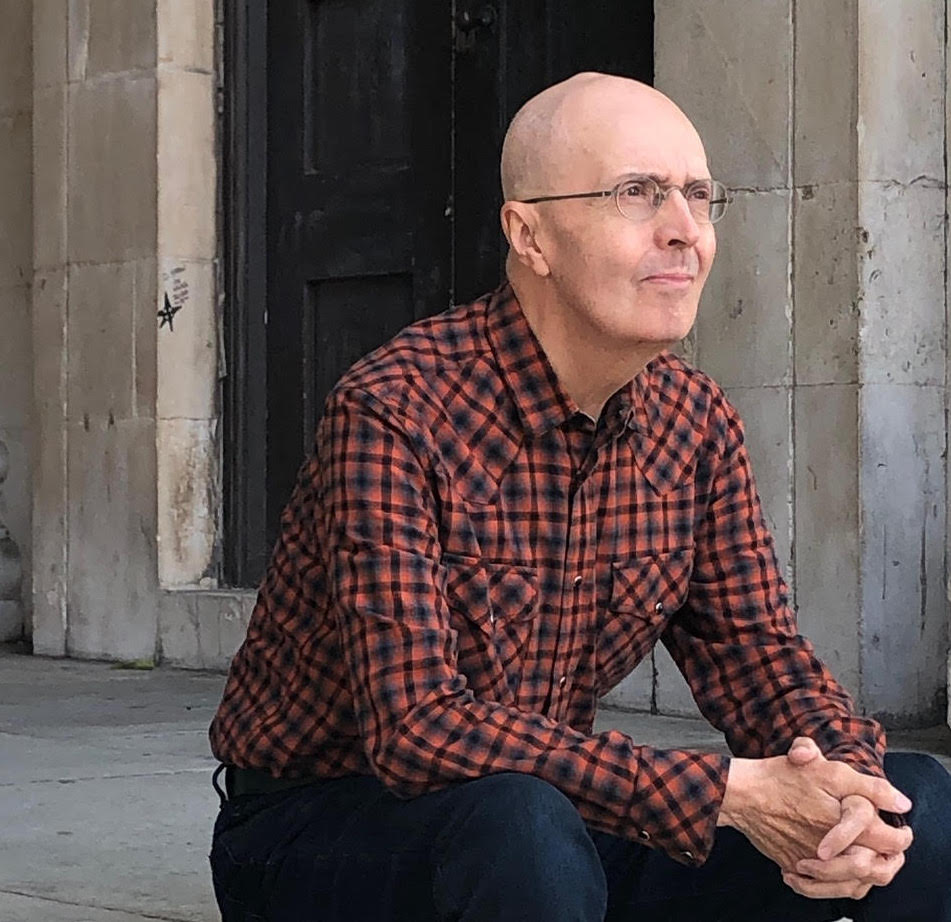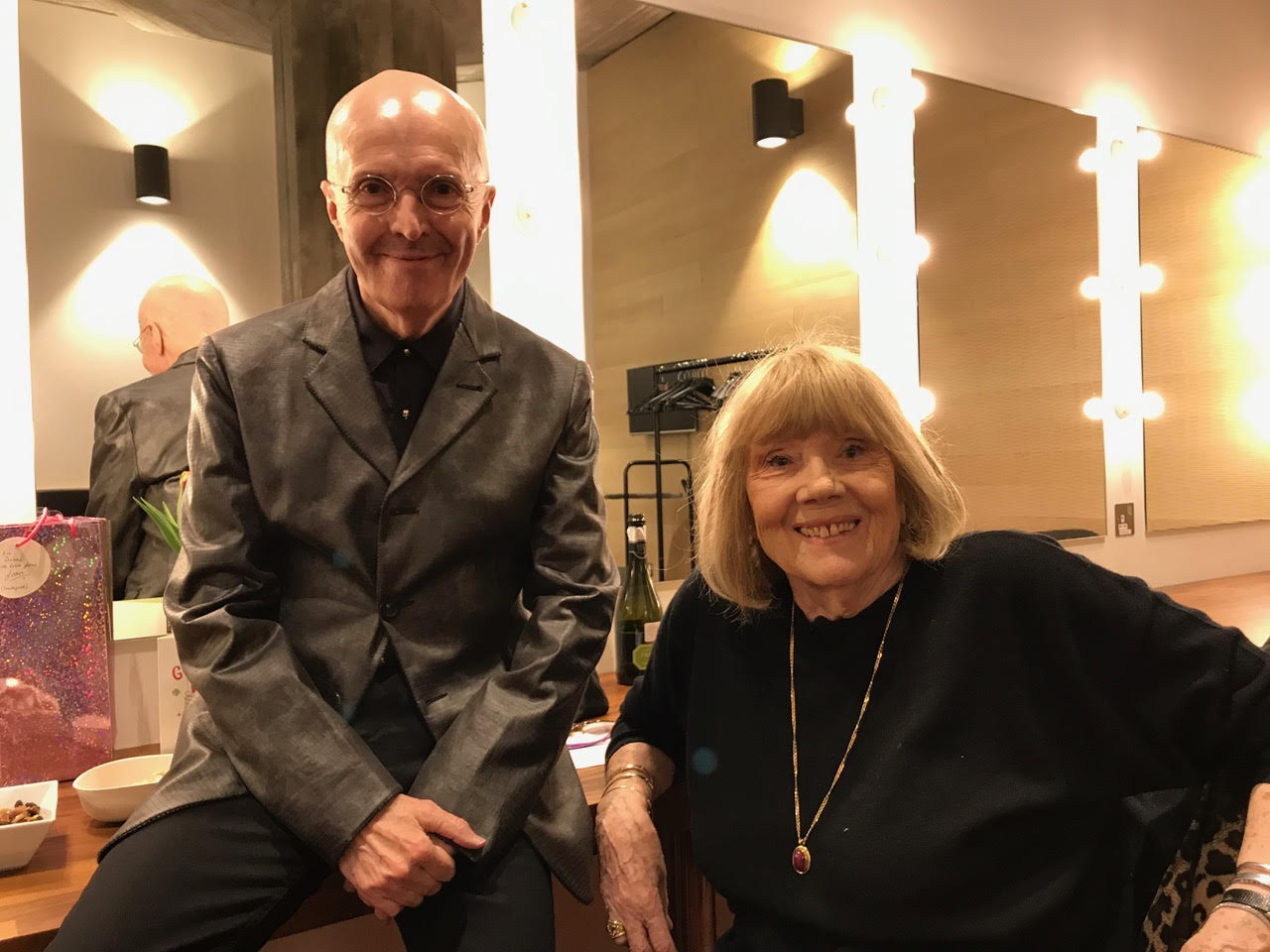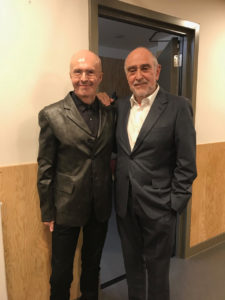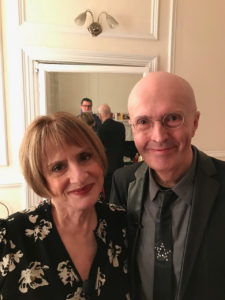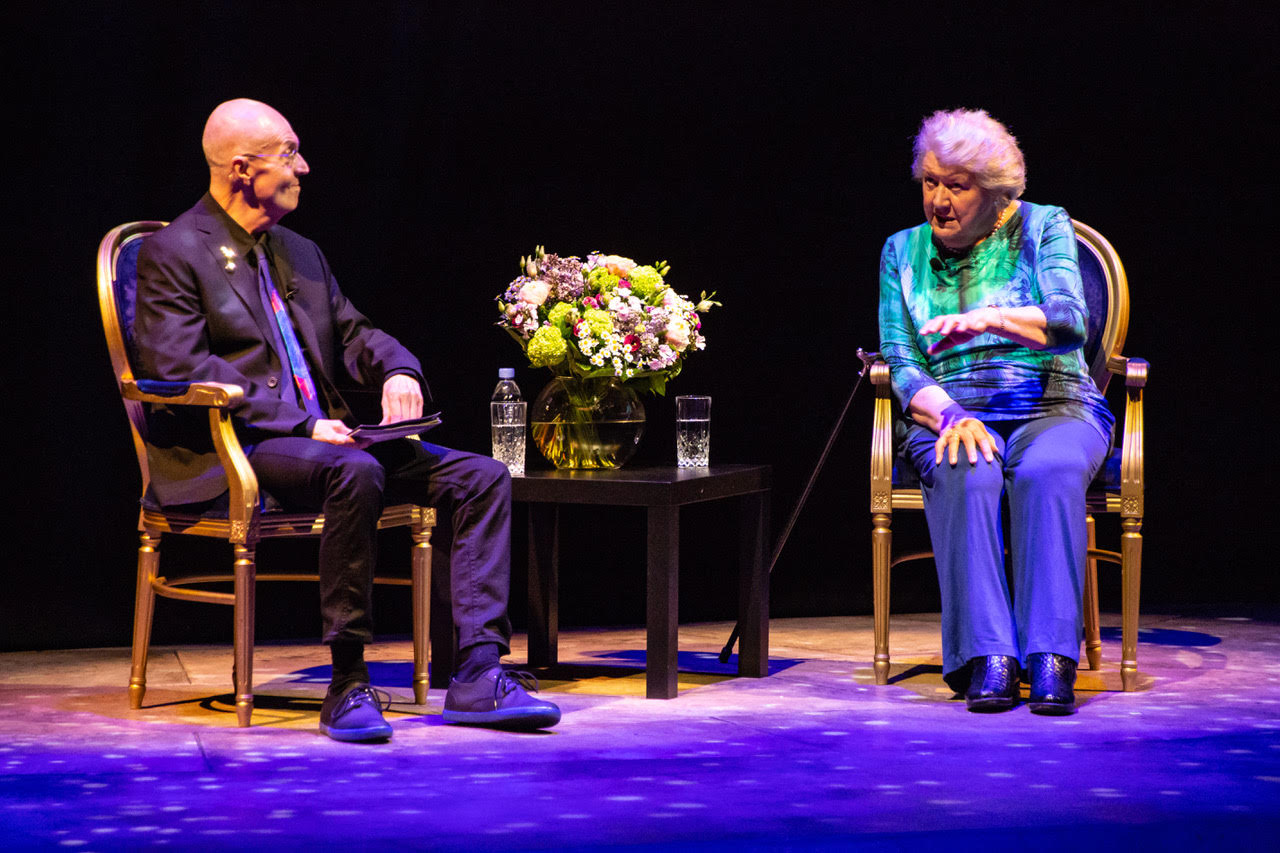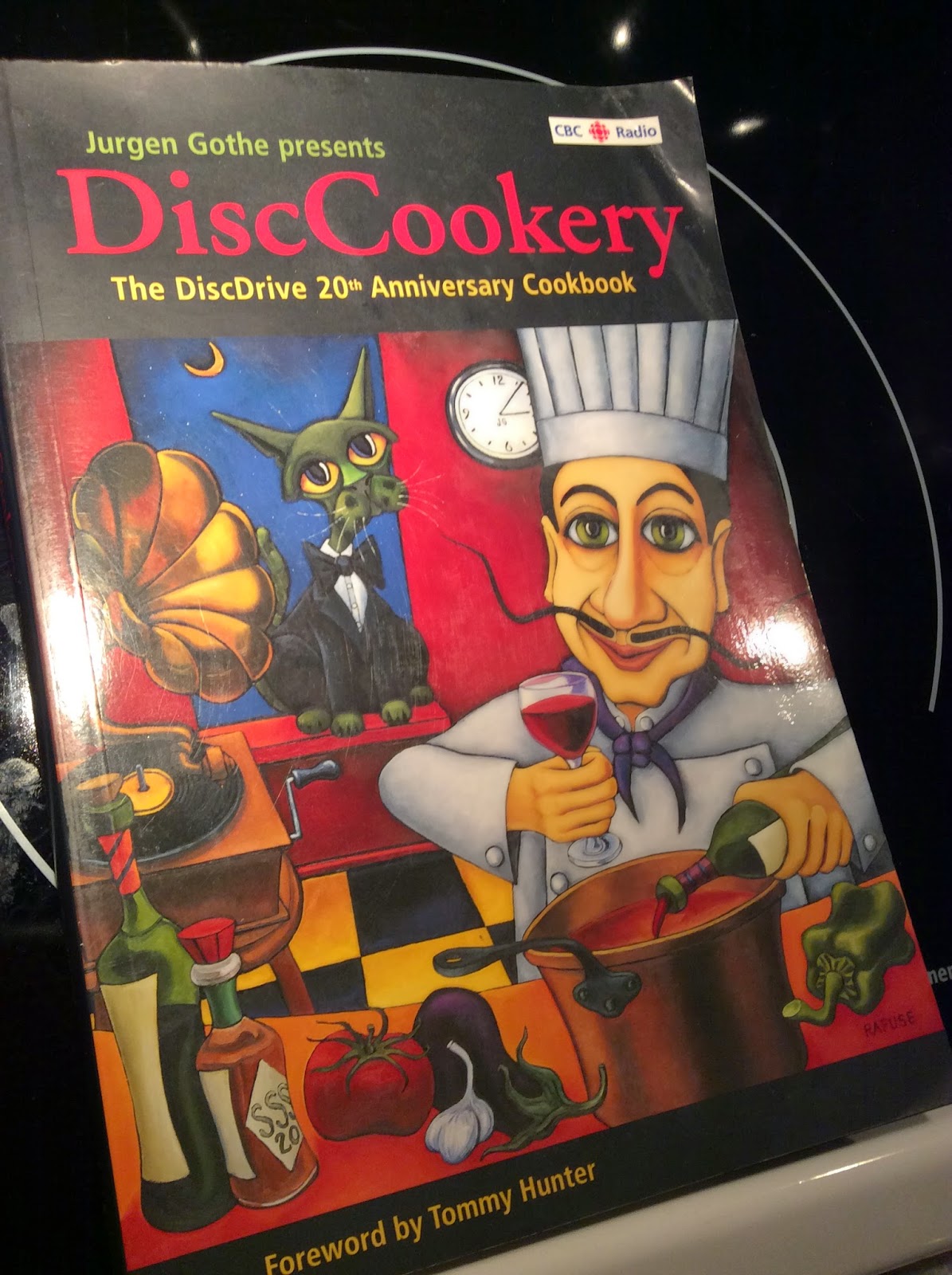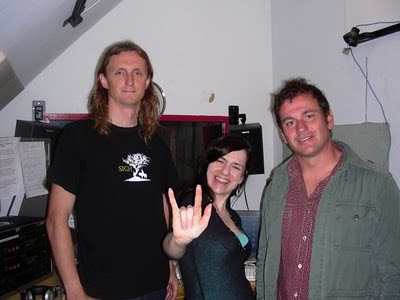Among the many unexpected delights of lockdown life has been the opportunity to connect with people from the worlds of media and culture, and sometimes, the two combined in one. Waldemar Januszczak is art critic for The Sunday Times as well as a documentary maker with numerous television specials to his name. Those programs, which have been produced for over two decades, reveal immense curiosity for the ever-evolving, all-encompassing universe of culture, and each is presented with humour, gusto, and incredible if equally approachable intelligence. Waldy, as he’s known online and through his entertaining podcast with art historian Bendor Grosvenor, first came to my notice in 2015; though I’d read his work for years, it was Waldy’s four-part series on the so-called Dark Ages that caught my attention. Broadcast on a local channel across four Monday evenings at the height of summer, the series (from 2012) came at a particularly challenging time that year, having lost my mother in July and endured severe illness and multiple surgeries on my own before and after that. The nagging questions, in both personal and professional spheres, of who I was without the central figure of my music-loving mum loomed extraordinarily large; I would stare at the works of Louise Bourgeois and Frida Kahlo in books and online for hours, trying to glean some sense of order (beauty seemed too far-off and impossible to hope for), some sense of understanding, to a world rendered hazy, tilted, skewed, strangely airless. I would go to my own easel and try to draw or paint; I would sit at the computer, and no words would come. Who was I, outside of being this person’s daughter? Who was I, outside of this prison of a body I felt trapped in? Who was I, with these hands, which held my mother’s as she passed away, which held pencils and brushes, which typed out so very many words-words-words that seemed to affect no one and nothing at all?
Waldy’s work – his friendly presentational style, his enthusiasm, his clear thirst for knowledge – helped provide some clues. The full of the series (The Dark Ages: An Age Of Light) was precisely the feeling imparted through the experience of watching the series at that point in time. It was as if a great spotlight was being shone on not only early Christianity and the Middle Ages, or indeed its related iterations, forms, and expressions, but along the way I, myself, was experiencing history and related notions of darkness, light, and all manner of shade and shadow between. By showing a new way to look at the past, the series, and Waldy’s work more broadly, provided an inspiring way of perceiving present and possible futures. The approach the writer/filmmaker takes to his work (one which, as I said at the start, blends smarts, humour, knowledge, and approachability) makes him a natural storyteller. Starting out at the University of Manchester as a student in art history, Waldy went on to become art critic, and subsequently arts editor of The Guardian. He worked in a variety of capacities across the BBC, and has, according to his own (quite humorous) biography, “since popped up pretty much everywhere where a radio dial can reach.” In 1989 he became commission editor for arts at Channel 4 (a time, which, he explains, was immensely fruitful in terms of providing future inspiration to his own broadcasting pursuits), and in 1993 also was put in charge of music at the channel, and subsequently began annual broadcasts from Glyndebourne – not to mention a little festival called Glastonbury.
That same year saw him become art critic for The Sunday Times, where he has been ever since. Twice voted Critic Of The Year, he co-curated a show at the British Museum in 2008 where modern and ancient sculptures were shown side by side, inspired by his own series on sculpture from four years earlier. Making films since 1997 with his own company, ZCZ Films, Waldy’s artistic explorations have been wide-ranging and ambitious: countries (Japan, Kazakhstan, America), concepts (politics, night), artists (Picasso, Gauguin, Michelangelo), religio-historical depictions (Mary Magdalene), and eras (the Renaissance, Baroque, Rococo). Along with writing about contemporary art issues, including pieces on art collectives, the creative and spiritual meeting in abstraction (specifically the work of Hilma af Klint; both March 2021), the Turner Prize, the symbolic power of a show focused on textiles (both May 2021), and how COVID has changed the art world (January 2021), Waldy has also written touchingly personal pieces – about the father he never knew, and about his battles with weight. Those writings are sincere and visceral, but they bear no trace of the sort of overwrought sentimentalities which so often characterize such works in the digital era; rather, they are the rich and (more than occasionally) spicy ingredients which constitute a person who is unafraid to be his own culture-loving, knowledgeable, opinionated, funny, vulnerable, unpretentious, immensely real self.
Such qualities may go a ways in explaining his presence on this website, for while Waldy does not work in opera, he embodies the very qualities so vital to the classical world, especially at this point in history. I referenced his work last year in an essay, and I’ve come to feel in the time since that his is a presence and a talent wholly needed, as various cultural worlds move away from lockdown status and toward some kind of normalcy. For while brilliance does indeed hold a place in the classical world, authenticity, compassion – humanity – matters more, in this, our brave (and hopefully better) new world. We connected on Twitter (very brave new world indeed), over what I seem to recall was my love of the work of performance artist Ulay. (If you know of and/or like the work of Marina Abramović but have never heard of Ulay… please amend; his work holds extraordinary significance and beautifully poetic power.) Amidst the variety and ambition of Waldy’s pursuits, it seemed important to ask him, first and foremost, what he thinks of himself as: writer or broadcaster? His answer wasn’t particularly surprising, but his warmth and good humour, which carried throughout the course of our near-half-hour exchange, was a welcome and hopeful sign for post pandemic culture, and the people who love it.
You balance writing with broadcasting and documentary-making, but I’m curious what you call yourself.
An art critic, that’s what I’d like written on my grave. But right from the beginning, I’ve managed to do two things at once. When I was younger I was a student in Manchester, and I did this thing for radio, a student’s hour – I got roped into it – and someone at the BBC heard it, so I got working on the BBC doing a radio program when I was still a student, and it was out of pure luck. At the same time I was writing for Time Out; I’d do things for them and someone from The Guardian came across it and asked me to apply to them, so to cut a long story short, I’ve always done broadcasting and always done writing and the two have managed to keep going in parallel all the way through. I’m very lucky, and I made a step into television, but what I really like is looking at art and writing about it, which is what being a critic is – it’s not about being right or wrong with your opinions; you simply want to look at art, and to write about it.
Your integration of education and entertainment feels natural without being reductive.
I’ll put it simply: I’m an art lover. From my earliest memory, anything joyful involved cutting out pictures of famous paintings and pasting them, in my little cubby hole I had under the stairs – I’d paste stuff on the wall. I’ve always taken great pleasure from looking at art. I don’t understand why everyone else in the world isn’t that excited about art – it baffles me. In the UK we have these nature programs and people are happy to watch two frogs having sex or see beautiful butterflies in the air, or whatnot, for literally hours on end – millions will watch that – but put on something about a Raphael painting, which is also a thing of great beauty, or something about a sculpture by Bernini, or some great piece of architecture, and they tune out in the millions. I just don’t get it. It’s been this battle, always for me, to try and bridge that gap, to try and share this idea that art is interesting, exciting, and above all, a human achievement. It is my mission to try and tell stories of art in ways that connect with people’s lives. That’s all I ever tried to do. I don’t set out to be an original thinker necessarily, or to be necessarily different, I just set out with the firm belief that everybody should be able to talk about art in ways that involve or interest them, and that communication about it is what counts.
I like how you pull things away from being purely academic into a very direct and often sensuous relationship with art. I might be daunted by the artists and their related histories but watching your stuff, I don’t feel daunted at all.
That’s a real compliment, thank you. I’m so glad to hear that, because that is what I want to do. Many years ago now I did have a job in formal television, I was the commissioning editor for music and art programming at Channel 4. So for the eight years I was there, I commissioned other people to make art programs, and I watched what they did and how they did it. And I became more and more determined and experienced in the field myself, and determined to not do what they did. The thing I least like in any kind of writing about, or making films about art, is what you’re talking about, this sense of art being something difficult, some kind of homework, that not everybody can get or understand. A lot of the language of documentary filmmaking emphasizes that aspect, with these added tropes: the music that isn’t very cheerful or it is atonal and difficult; there is speaking about stuff in ways that don’t really mean anything – if people don’t know what they really want to say, they usually use twenty words instead of one, because it creates an illusion of knowledge, authority, and experience. So when I gave up being a manager of other people’s work and began making my own documentaries again, I made rules; there were things I knew I wanted to do, and those rules are all to do with this thing you’re talking about. I want people to learn stuff and enjoy it – I’m not there to preach or look down on them if they don’t know something. It’s been the experience of watching other people do this that has driven me to that.
But you combine this knowledge with your strong personality – I wonder how much that draws people in, so it’s not solely “Oh, a doc about the Renaissance” but “Oh, Waldy is presenting a doc on the Renaissance…”
I think one of the things is, I’m Polish, I’m not English, as you can tell from my name, and we’re a different breed you know? Polish people are not like English people; we have a different way of speaking and expressing ourselves. And in television and the BBC especially, there’s a very specific type of person that works there, fits into that culture, and succeeds, and someone like me comes along, and I’m the other, I’m different in almost every way. One of my sins is I like eating, a lot, so I’m chunky, and in television, especially these days, you don’t see chunky people, they go for the slim, pseudo-intellectual from Cambridge, so I stuck out there, because I am different and I’m not afraid. And, I think I’m confident in my knowledge. That’s one thing I can say of myself: I love art so much I’m constantly researching it, seeing it, loving it, and if you’re confident in your knowledge there’s nothing to be afraid of. So I try to find new ways of delivering material. I’ve always wanted to do that.
What I’ve noticed is that people remember things from the films, and what they remember surprises me often. In one of the things I made years ago, about the Baroque, there’s a scene where I’m looking at a ceiling in Rome, and I decided to do the camera shot lying on my back, because that’s the only way to look at it. If you want to see it properly, you lie on your back. It was a BBC series, and all the BBC people said, “You can’t lie on your back, you have to stand up and look authoritative on television!” So there are these funny things that do tend to bother some people but they’re not done for gimmicky reasons, I do them because I want to convey my excitement and experience in looking at stuff.
But that humanizes the art in the process, and that’s what is so often needed in the culture world. But it’s questionable if that style is supported by the people in charge…
That’s the point, yes – and arts programming does not get enough support anywhere. It’s a hard graft, getting the commissioning to do stuff. You know, I can’t tell you how many programs I’d love to be making right now; we don’t get the numbers to compete with the shows like reality television or the cooking shows, we don’t get the numbers they do because partly, in the past, arts programs have presented themselves as this thing you referenced, and that put a lot of people off. That’s a hard history to shift – a lot of people remember this sense of being talked down to, boringly, and they don’t want to see that. Of course what we want is everybody dying to turn on the television to watch, but it’s a tough ask because of that history; when you say something is “arty” there’s’ an awful lot of people who turn off, immediately. That word alone puts them off, and it’s one of the battles.
But do you think that tide might change now?
I’d like to hope so. I don’t know! I’ve not had a chance to find any evidence yet, but I do think the pandemic is having and will have a profound impact on the future, and I think it will be very hard to unlearn the joy of being at home and to not be imagining things for yourself. The pleasures we’ve had from this situation – as terrible as it’s been – have been things relating to people being in the position of having the time to examine the basics. And they’ve found new outlets for their attention, whether through television or podcasts or whatever. My own podcast, we only did it initially to do something during lockdown, but loads of people have said they’ve enjoyed it, so there is hunger for art, and an opportunity to take advantage of that hunger, but whether broadcasters will help us out with that is another question; they are not interested in changing the way people think about art, they have other fish to fry. But I’m optimistic.
One good thing is that my work has reached a much wider audience and that’s not to do with Covid, but the way television has gone everywhere with the preponderance of satellite channels. It used to be the only people who recognized me in the street were people who watched the BBC, but in the time when things eased between lockdowns last year, I remember going out and there were about sixty South Korean people who came rushing toward me in the street shouting, “Hey Waldemar!” They’d seen me on television there. So the international aspect of all that (interest) was very encouraging. I have a theory that in every country there are a million people who might be interested in art who, years ago, you had no chance of speaking with, but now there’s a chance, so add a million people up in every country – and that’s a lot of people interested in art. That’s encouraging.
And you have an audience on Twitter…
I love Twitter – you hear other voices there. And the best thing about it is the reactions! For all we know, no one will ever read what I write formally, but on Twitter, people get back to you, and I love a good argument; I’ll argue with anyone, anywhere, on Twitter or elsewhere for that matter. So I’ve found (social media) fruitful. Some things I’ve done have been so pleasing. During the lockdown I ran this art thing with kids; people did homeschooling when the schools were closed, and, well, what could be more homeschooling-esque than art, really? People were drawing away, and so I’d set them little tasks, and there were these fantastic responses, they were really pleasing, these kids, 8, 7, 6 years old, drawing away and sharing their work. The other day we had David Hockney on the podcast and he said something wonderful: “why would anybody not want to draw? Try telling a 3 year-old kid not to draw!” It’s a thing we all have; everybody has that instinct, and so I had this forum where kids could express that during lockdown.
I loved that series (as did many), especially as someone without kids. That series was actually the point where I lost my patience with people who dismiss social media; for some of us, that’s the only way we can see that kind of thing. It’s our window on a different world.
Well gosh, you’d be horrible not to like this kind of thing, and to just dismiss it because of where you saw it! And it’s worth remembering that so many artists have nourished themselves on memories of childhood as well, and that Twitter is a great vehicle for expressing and sharing that sort of stuff. If you’re someone who comes up with lots of ideas, it can be a great forum for expressing them, and for promoting them. I find it very alive. With all these hours of daytime we had because of the pandemic, a lot of times in the day, you’d be in the office, alone, twiddling thumbs; you’d go on Twitter and find someone to talk to. I’d see these nice people writing in from Scotland and Australia and New Zealand, and that (experience of communication) was liberating and very pleasing.
It’s how we connected too! I want to feel reading your various exchanges makes me a slightly smarter person.
You’re pretty smart as it is, so don’t worry about that! I’m so pleased we’ve connected, and with others too, I’ve done so much during lockdown. It’s nice to talk. That’s what it’s about.
How has all this connecting online changed your approach to your work, or… has it?
I don’t know how much it’ll change my approach in terms of my bread and butter work with The Times – with that, I do what I always do: see shows and write about them. But I have made a lot of new friends. One thing that Twitter is really good at is supplying you with information: you ask a question, you get a lot of responses. I had a film about Michelangelo on Sky Arts out recently and posted something relating to obscure arguments about biblical translations – the kind of stuff no one is into except me and a few biblical scholars, or so I thought! – and got so many responses from so many people. It was such fantastic information! You have to be really in the world of bible studies to know about these things, but it was so exciting to learn these things. So it can be a fantastic forum for education, for all of us, and more broadly, I think it’s given lots of silver linings to this terrible, terrible time, which we are now hopefully coming out of.

